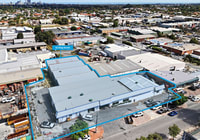
‘Nanny state’: Victorian pubs put brakes on expansion
Victorian hoteliers are holding off opening new pubs across the state until there’s certainty about the impact of proposed gaming legislation for pokies, designed to curb problem gambling and which is set to be trialled in the middle of this year, industry leaders say.
There are fears among pub owners who rely heavily on poker machines that a decline in their revenue if the legislation is enacted could lead to significant staff reductions and potential closures. Many pub operators are still getting back on their feet after Victoria’s lengthy COVID-19 shutdown.

Changes to gaming legislation were presented to parliament in March. Under the new rules, player cards need to be inserted into gaming machines, giving players the means to set loss limits to reduce gambling harm.
“This establishes the means to enable patrons to make better informed choices about their spending,” Melissa Horne, former Victorian minister for casino, gaming and liquor regulation, said at the time.
A three-month trial across 40 venues will start in mid-2025 before the new rules are introduced if passed by parliament. So far, Victoria is the only state or territory to propose mandatory carded play in pubs and clubs, although this is already in force at casinos in Sydney, Melbourne and Perth.
The pub industry fears smaller operators will be hit the hardest, leading to venue closures.
Tom Francis, a second-generation hotelier and managing director of hospitality group Francis Venues, said Victoria’s “overkill wokeness” on its gaming legislation had caused him to turn his attention to NSW, expanding into the state over the past year.
This nanny state business of wanting to tell people when and when they cannot go to the toilet, it’s just a bit over the top.
Rich Lister Arthur Laundy, head of Laundy Hotels
“The yields came up a little bit [in] New South Wales, they’re more attractive,” Francis said. “Yes, it’s very much more competitive, but I like that it was perpetuity on entitlements, $10 spins, and obviously the government was probably more pro-gaming.
“New South Wales, I’ll probably continue to search and look for investment opportunities there as well, but not so much Victoria until we find out, I guess, the future of where all the reforms sit.”
Francis said that if Victoria’s gaming reforms were implemented after the initial trial and there was a 10 to 30 per cent drop in his revenue as a result, he would have to focus on his costs, raise food and beverage prices, and reduce the operating hours of his venues.
“Many ancillary departments which are supported by gaming revenue would be consolidated or cease,” he said. “The pubs would become smaller-footprint sports bar gaming venues, which is not what we want.
“I can see smaller operators really getting hit.”

Bruce Mathieson jnr, son of pubs scion and billionaire Bruce Mathieson and a former director of the Endeavour Group, said the Victorian gaming industry in Victoria was very tough and tight.
“In comparison to around the country, Victoria is, I would say, the toughest market in the country,” he said. ”You’ve got to have a real plan as to how you’re going to invest going forward.
“That gets very hard when the goal posts continually change on you.”
Rich Lister Arthur Laundy, head of Laundy Hotels, said he could understand why some Victorian publicans were putting any prospective expansion plans in the state on hold until a trial was completed.
“I’ve got opinions probably contrary to a lot of people, simply because I’ve run hotels now for 60-odd years. A gambler is a gambler,” Laundy said. “Providing it’s his own money, he’s entitled to gamble.
“This nanny state business of wanting to tell people when and when they cannot go to the toilet, it’s just a bit over the top, I think. You’re treating people like fools.”
Ben McDonald, head of pubs at JLL, said the Victorian reforms could have a big impact on pubs that relied on a large contribution to their revenue from gaming machines. They were holding tight until they knew if the legislation was going to be applied.
“It’s had an enormous effect on just total transaction volume in the market. It’s been a major inhibitor of that,” McDonald said. “What we’re seeing is the market has become increasingly borderless, so we’ve got people looking interstate pretty frequently.
“We didn’t use to see that a lot, but I think people, for various reasons, value opportunity, legislation, we’re seeing people look interstate.”











